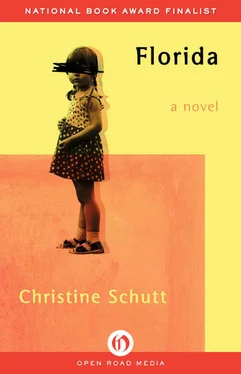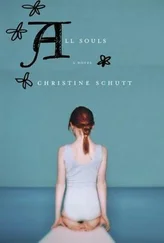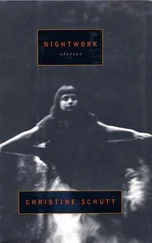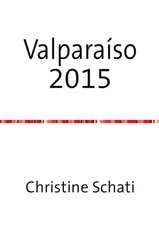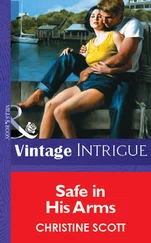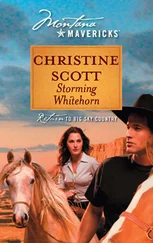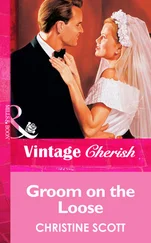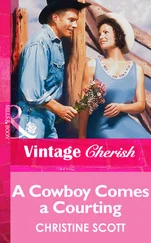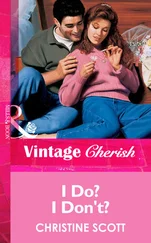“Can I?” I asked, already starting, “Can I?” my hand in the jar of salted pretzels scrolled like the tops of old desk keys.
Someone else’s clothes I found in every closet of the Big House. Doll-sized gloves! I split one up the seam twisting in my hand. Worse, I didn’t put back what I had found; I broke the spines of narrow shoes, insisting.
I tried to be quiet: room to room to room, wandering.
My clothes hung in a room far enough away and which Nonna could not visit. The wheelchair was too wide; she could not fit through the door to see how it looked, my room, made up for me, ruffled and canopied and lit up by lamps that threw pleated shadows. Roses red forever were embedded in the door knobs noiselessly turned. Opening and shutting the doors then, out of the bedroom and into the bathroom, I went in and out and in and out a good part of the night on those nights I slept alone. A lot of the time I took baths. The water I ran at almost any hour was slow to heat and smelled of rust and wet stones as I bent to it: rushing water — rusty, yellow, then steamy — hot and hotter. Ah, underwater, then my breathing was as large as the voice I heard telling my story — I liked it.
“Do you hear me?” I asked imaginary children or someone else I imagined asked me. I spoke in many voices from whichever house I set the action — at Mother’s, Uncle Billy’s, Arlette’s, Nonna’s … on and on — and me in the story as the one who is watched.
“Can she hear me?” That was how some visitors started conversations with Nonna, asking of the nurses, “How has she been?” Asking such questions in front of Nonna about her diet, her pills, her doctors, her pets — about me, asking the nurses about me! “Having a teenager around doesn’t tire her?” when just to see us together, I thought, was proof we made good company. I knew what it was when Nonna pointed, and I brought it to her: her reticule, her tippet, her toque. I knew the old names to old things.
“Can I really?” I asked, and Nonna trembled shut the clasp to the twisted rope of garnet. I never told anyone of all that Nonna gave me although Uncle Billy noticed gifts I wore.
“Aren’t those Nonna’s pearls?” he asked.
Once, making a fist, Uncle Billy banged on Nonna’s screen. Once? No, more than once, but one time in particular he lost his temper. I saw him banging at the screen and whatever was being done to Nonna behind it. “Miss O’Boyle,” he said, “will you please get on with it? I need to talk to my mother,” but he didn’t wait or he couldn’t wait to say it. “Goddamnit, Mother. Why did you give to Alice what you always promised to Frances?”
I wondered what, of all Nonna had given me, did he mean? What did he mean now, and how did he suffer? I hoped he suffered a lot, and in this way, too, was the Big House corrupting. I hoped they all suffered. I liked it when I heard Uncle Billy yelling, “Daddy wanted me to have that prayer rug.”
Uncle Billy and his wants: the Italian urns and most of the paintings, too, that much I knew. He put his name on the backs of the paintings; he didn’t care who got the silver although someone would soon. There was to be a getting of Nonna’s house. The cook, the nurses, the cranky Arlette talked about Nonna’s possessions.
Arlette said, “Who would want to polish such a tea set for life?” Her hands were gray despite their work’s gleam. Strangers to me, friends of friends of Uncle Billy’s, all visiting Nonna and brought along to see the Big House, asked me Who would inherit? They asked me, “Do you ever get lost in this house?” They said, “What it must be like to live here!”
Sometimes I took them around.
I took them to the walk-in freezer where the plucked ducks, in their Nonna-colored skins, were bagged and shelved along with sacks of cut-up vegetables from Nonna’s garden. Here were freezer-burned raspberries never to be eaten and industrial tubs of ancient ice cream furred like the berries, fringed with freeze. “Only the parrot will eat this stuff” was the story I told the strangers, and then I took them to see the parrot as proof.
“This is the sunroom, but the marble keeps it cool,” I said, “even in the summer.”
“And the boathouse, yes, down all those steps.”
“The library.”
“His sailing trophies.”
“The library again.”
“He liked naked women.”
“We could even have a fire. Arthur will lay it. He helps here, too; there are no other men. Grandfather dead, Uncle Billy too busy, so Arthur does — has always — will do. He oversees the Big House. He makes sure of all of this, yes; Arthur is, yes, a bit overworked, but at any time he’ll make us a fire.”
Five fireplaces in the house, and they all needed cleaning. Eleven acres of specimen trees, terraced gardens, clay tennis court — this was an estate, and someone had to see to it everything worked, and that someone was Arthur. My grandfather was dead and Uncle Billy had his own concerns — who else was there then to see to it that Nonna’s house thumped on? His great store of keys on the keychain he carried was sharp, heavy, seeming dangerous machinery, some of which started other machinery that helped the Big House to run.
Arthur was the one most in motion, but to think of the monotonous driving he did, how he drove back and forth, from Uncle’s to Nonna’s several times every day, and for a time, and almost as often, Arthur drove to what was Mother’s house and mine, down Lawn Street past School. Our house, pretty thing, it made me wonder how my father could have left it. Perhaps he only wanted warmer — Florida, maybe — perhaps he was that way headed when the accident happened and he drowned.
The car through the ice, the fire up the hill. “Fire!” I told the visitors to Nonna’s house, “Even though we live on a lake!” I said, “and there is all this snow, and the summers are damp.”
The visitors said they hoped to come back in the summer to see the gardens and to swim. And sometimes they did come back these visitors, friends of friends, breathless on the landings. They came for an hour and stayed the afternoon. They wanted to see the garden even in the rain; the water they swam in was cold.
I didn’t go in; I watched. This was, after all, for a time, where I lived aged thirteen, fourteen, fifteen, on and on in the Big House with the mystery of Nonna and all of her money.
“BUT WHY, OH WHY didn’t you tell me about it?”
“Why didn’t you tell me?” Aunt Frances asked. She said, “You should tell me when the help is unhappy. Now we’re missing silver, but those women can’t get far in the jeep.”
In all of the houses I lived in, silver went missing.
Some of the help stole cars.
“BUT NEXT TIME, TELL me,” Aunt Frances said. “Tell me if you think your nonna is failing — forget the nurses. Use the phone. Your uncle Billy has the keys to the house, and when the time comes, he wants to lock it.”
A year, another year, summers passed, yet they still made up a bed for me next to Nonna on the chance she could be comforted with company. Poor, forlorn Nonna! In a crib for old babies, railed and castered and made up with blankets no matter it was ninety damp degrees outside.
“Feel your grandmother’s forehead,” Miss O’Boyle said. “Feel how cold she is!”
But what I felt was soft and cared for, an unnaturally healthy grandma, clear spittle on her chin and wearing a bib, sometimes needing to be wiped. Her eyes were almost always open and wetly watching me at night.
Miss O’Boyle said, “She doesn’t want to miss what’s left.”
Nonna’s eyes showed interest when I told her Arlette stories. How Arlette ate catsup on white bread and gave me eggs for dinner and wouldn’t sit with me but ate standing up looking out at the river. Arlette’s house was by the river and was the color of the river, a house — really a shack — near a mud-brown gush ridden by kids in tires near collapse. These river-riders waved to the passing houses; they spun in greetings to the bankside: hello, good-bye, hello, good-bye. But most people didn’t wave back; they went on hosing down the porch; they went on fishing or working underneath the hoods of beat-up cars or burning trash or adding to the compost eggshells and coffee grinds — especially coffee grinds. I was too young for coffee when Uncle Billy first had Arthur take me to Arlette’s house. Mother was sick and needed quiet, “a little bit of Florida” was what Uncle Billy called it, that place where sad people went for cures. At Arlette’s there were different rules and different smells, mostly coffee. Everyone on the river drank a lot of it. The next-door mother spilled it in her baby’s bottle to flavor the milk as a kindness — besides, what other kindness could she show her baby when she was taking in laundry, taking in dogs, taking in other mothers’ toddlers. She kept her own diapered on a staked leash in the yard where it walked the rope taut, fell and walked, wagging a nippled-bottle in its teeth, or else it slept. Under the blaring sky the baby slept — dirt for a pillow at the mother’s house next door, one in a close row of three on the river. Horseflies following everywhere here and sounds that waked me, late-at-night plashes of thrown objects — bodies, large animals, bedroom furniture? I was ten when I consented to stay at Arlette’s but not so young I could sleep through such clamor. The question was who was fighting? Whoever had such energy late at night … I had thought only Mother, but Arlette, glowering the counter clean, said it was the neighbors in the lilac-colored house. “Those stupid people make noise like that.” She said, “They fight all the time.”
Читать дальше
